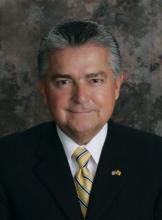When it comes to the outcome of a medical malpractice jury trial, a physician’s attitude, demeanor, and presentation make all the difference, say judges who’ve presided over many such cases.
"The fact finder has to look at them and find them credible and sincere when they’re hearing their story," said Lorenzo F. Garcia, chief magistrate judge emeritus for the U.S. District Court for the District of New Mexico. "There’s truth and there’s perception, and perception can trump the truth. In litigation, being right isn’t always good enough. You can be right in a claim or right in a defense and still lose if the fact finder doesn’t believe the testimony or dislikes a person, witness, or an attorney."
Exhibiting arrogance or defensiveness when testifying can quickly sway a jury against a defendant doctor, adds Judge Garcia, who provided trial insight with several other judges at the American Conference Institute’s obstetric malpractice claims forum. When taking the stand, it helps to remain respectful at all times, refrain from acting combative, and demonstrate concern when discussing patients who were injured, he said.
Physicians should also be aware of how their attorneys are presenting themselves and interacting with legal parties. Being rude to judges, litigants, or attorneys can have a negative impact on jurors’ view of that particular side, said Sandra Mazer Moss, a retired Philadelphia Court of Common Pleas judge.
Doctors have a critical role in helping court participants understand the medicine surrounding a case, notes Judge Mazer Moss, who also spoke at the ACI conference. This includes properly preparing attorneys to speak about medical events and ensuring jurors clearly understand medical facts.
Health providers "can help explain procedures so that attorneys can understand and relay the information," she noted. "When you put a witness on the stand, they have to [clearly] explain how the procedure was done. It would help if the doctor had physical aids, PowerPoint [slides], or models."
However, Judge Garcia stresses that physicians and their attorneys shouldn’t overly rely on technology during a trial. He has presided over medical malpractice cases in which electronic equipment failed and caused long delays, he said. In some cases, the technology problems prevented plaintiffs or defendants from effectively presenting their arguments.
"To start a trial in such a fashion and see that jurors are not happy and that time is going by; there’s a valuable lesson" there, he said. "Make sure you practice and try the technology ahead of time. [Technology] can be exceedingly effective, or it can be a disaster if it doesn’t work well."
Another contributor to a successful malpractice case is the ability to tell a powerful story, Judge Garcia said. In his experience, litigants who choose a central theme and weave that idea throughout the trial are most effective. For example, the defense may open the trial by emphasizing that the case is about a patient’s bad luck, not bad medicine, and coming back to that point throughout the proceedings.
"Quite frankly, that’s what jurors like to hear," he said. "They want to hear a story, so part of the preparation is trying to find the most important [piece] of the litigation and developing a story that can be a recurring theme. The development of a theme is one of the most significant tasks parties can engage in, and it assists in the presentation of the claim or the defense."


